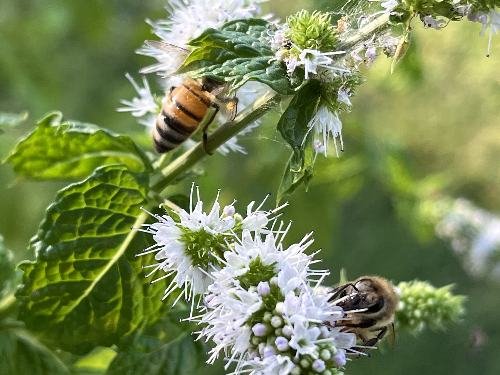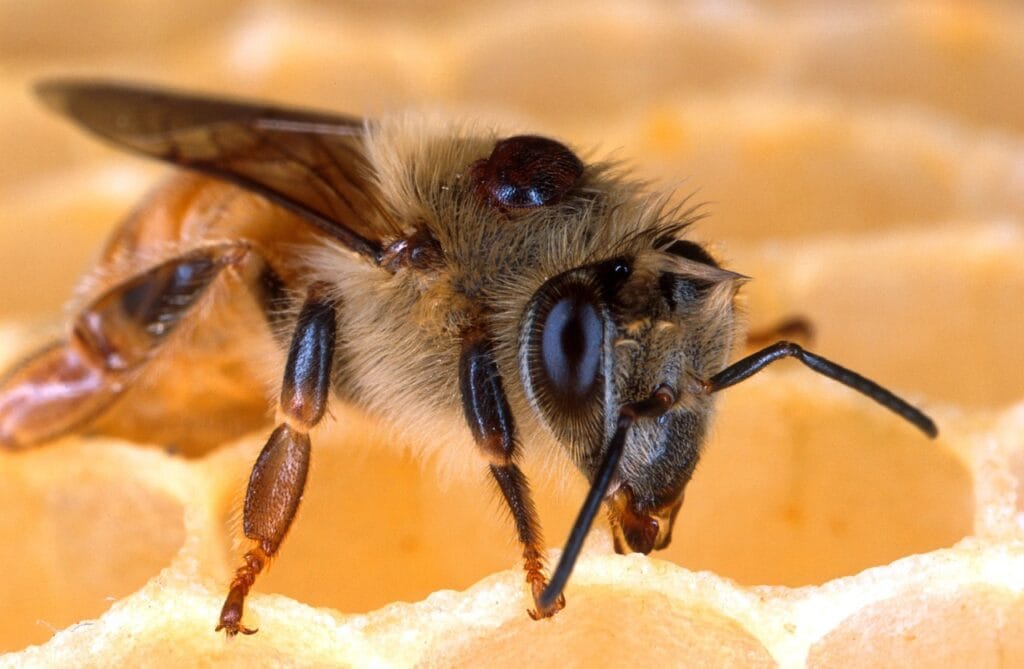Future trends in sustainable beekeeping focus on combining advanced technology with eco-friendly and bee-centered practices to protect pollinators, enhance efficiency, and support biodiversity:
- Smart Hive Technology & Remote Sensing: The adoption of smart hives equipped with sensors for monitoring temperature, humidity, hive weight, and acoustics allows for precision management. Beekeepers can make data-driven decisions, reduce intrusive inspections, and use resources more efficiently, lowering their environmental footprint[1][2][3][4][5].
- AI & Predictive Analytics: Artificial intelligence processes hive data to predict disease, pest infestations, queen failure, or swarming events, enabling proactive and sustainable management practices that enhance colony survival[1][2][3][5].
- Eco-Friendly Hive Materials: There is increasing use of biodegradable, recyclable, and locally sourced materials for hive construction, including natural insulation. This trend addresses both the “zero waste” philosophy and the need for sustainable, durable apiary gear[3][5].
- Organic & Chemical-Free Approaches: Beekeepers are moving away from synthetic treatments, focusing on organic disease and pest management techniques (like essential oils or biotechnical methods), which help maintain strong, resilient colonies without environmental harm[6][7].
- Supporting Biodiversity: Planting native wildflowers and maintaining diverse forage around apiaries supports local ecosystems, improves bee nutrition, and benefits other pollinators. This landscape stewardship aspect is increasingly recognized as foundational to sustainable apiaries[6][8].
- Climate-Smart Beekeeping: As erratic weather and climate change threaten bees, smart hives can actively regulate microclimate, while urban beekeeping provides safe new habitats and connects city dwellers to pollinator protection[3][8][9].
- Traceability & Transparent Supply Chains: Innovations like blockchain are used to track honey from hive to market, ensuring authenticity and promoting consumer trust in sustainable and ethical honey production[3][5].
- Education, Community & Knowledge Sharing: Training resources, digital lessons, and support networks are empowering both new and established beekeepers to adopt sustainable best practices. Community-based hive management and knowledge sharing will play a crucial role in the future of apiculture[3][6][5].
- Circular Economy & Eco-Packaging: Sustainable beekeeping is extending to packaging, with biodegradable and reusable materials for honey products gaining traction—reducing waste throughout the product lifecycle[5].
These trends signal that the future of sustainable beekeeping will be more data-driven, environmentally conscious, and collaboratively oriented—ensuring that both bees and biodiversity can thrive alongside productive, ethical apiculture[2][3][6][4][5].
⁂
- https://www.startus-insights.com/innovators-guide/beekeeping-trends/
- https://blythewoodbeecompany.com/blogs/news/the-future-of-beekeeping-how-technology-is-transforming-the-hive
- https://insights.made-in-china.com/Future-of-Beekeeping-Equipment-Guide-Innovations-and-Trends-Shaping-Sustainable-Apiculture-Solutions_aGgTWpVOVEHl.html
- https://www.linkedin.com/pulse/technology-apiculture-revolutionizing-beekeeping-sustainable-01gqc
- https://honeybeeandco.uk/honeys-role-in-2025-the-sweetest-harvest/
- https://broadusbees.com/blogs/news/sustainable-beekeeping-how-our-practices-help-protect-pollinators
- https://agrifoodnetworks.org/article/sustainable-beekeeping-lets-keep-our-bees-alive
- https://www.fao.org/agris/news/more-honey-how-agris-supports-diverse-and-sustainable-beekeeping-around-world
- https://www.alveole.buzz/blog/the-future-of-urban-beekeeping/
- https://beeculture.com/beekeepings-future/
- https://www.earthed.co/blog/bee-the-change-how-sustainable-beekeeping-contributes-to-climate-action/



